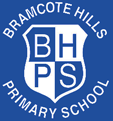BHPS Maths Curriculum
Intent:
At BHPS we provide children with a challenging and engaging Maths curriculum by offering a mastery approach, in order to deliver the three aims of the National Curriculum: fluency, reasoning and problem solving. Underpinning this pedagogy is a belief that all children can achieve in maths. We believe in promoting sustained and deepening understanding by employing a variety of mastery strategies. Our approach aims to provide children with full access to the curriculum, enabling them to develop independence, confidence and competence.
By the end of Key Stage 2, we want our children to have developed the necessary skills to make them ‘deep thinkers’, acquiring mathematical knowledge, skills and understanding that can be recalled quickly, transferred and applied in different contexts. They need to be able to make rich connections across the areas of maths and use their knowledge in other subjects. We aim to create independent mathematicians who are well equipped to apply their learning to the wider world.
Implementation:
We have adopted the White Rose Maths Hub long term approach to maths. The WRMH planning is a national project designed to provide schools with the most up to date processes and procedures in Mathematics teaching and learning. Our aim is to develop a culture of deep understanding, confidence and competence in maths across the whole of our school – a culture that produces strong, secure mathematics within each year group.
Our Maths curriculum is designed to allow children time to think, discuss, practise, explore and embed. This allows time for teaching, practice and repetition – both in a year group and across both key stages. Curriculum coverage is mapped out carefully from Year 1 to Year 6, which allows some key concepts to be developed at a deeper level of learning, understanding and mastery. Fundamental knowledge and skills are covered at key points throughout the primary phase and repeated to allow pupils to build on what has been taught before. Our aim is to ensure that the three core areas of the National Curriculum are covered in all of our lessons: fluency, reasoning and problem solving. We offer the children the opportunity to have varied and frequent practice (varied fluency – VF) of their maths skills, with the focus on their ability to recall and apply their knowledge rapidly and accurately. Reasoning is a key area in all of our lessons. Mathematical vocabulary is an essential part of each lesson and the children need to understand this within the area they are studying and be able to make rich connections across other areas within this subject. Each lesson provides children with the opportunity to reason through their ideas, use their mathematical language to explore a line of enquiry and problem solve routine and non-routine problems. We aim to build problem-solvers of the future and build resilience in our children; essential skills that they can use in all aspects of their learning. Lessons will be planned and a knowledge organiser provided for pupils, which outlines the area to be taught, where the new knowledge and skills fit in with their prior learning, any sticky knowledge they need to understand and key vocabulary they need to learn.
Impact:
Impact is evidenced through:
- Pupils’ use and understanding of the identified mathematical vocabulary
- Retaining key knowledge
- Quick recall of facts and procedures
- Demonstrating that they know more all the time
- Low-stakes tests/quizzes
- The flexibility and fluidity to move between different contexts and representations of mathematics.
- The ability to recognise relationships and make connections in mathematics
- High aspirations, which will see them through to further study, work and a successful adult life; particularly girls
